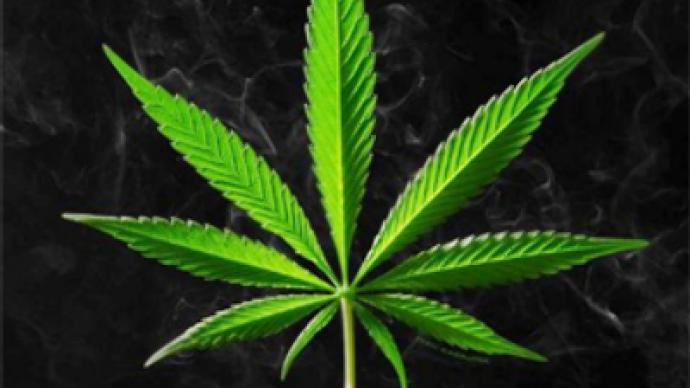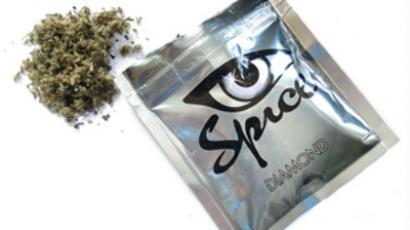The grass is always greener

A group of schools in North East England have been handing out 20-page leaflets which take an unusual approach to cannabis.
Anti-drugs advertising campaigns in the UK have long aspired to be less moralistic. From a talking cocaine mule dog, to a flirting bag of cocaine – ads have taken a more tongue-in-cheek and populist approach.
Information concerning the fact that cannabis is, in fact, banned in the UK, is glided over, while attention is given more to psychological issues revolving around its use. The focus of the document is instead intended for young people who wish to stop using the drug. As well as listing the negative effects cannabis may have, the leaflet also discusses the positive sides of smoking it, various techniques for doing so and methods for giving up.
Elizabeth, a former member of the Drugs Action Team in North East England, says that this kind of drug education has “been happening for a very long time.” From as long ago as the late 1990s there have been campaigns aimed at school age children which did not take a blanket approach to condemning the use of illegal drugs.
Previous campaigns involved coaching sessions with local football clubs (to illustrate the health benefits of not using) and competitions in which children must pass drug tests over a series of months to participate. There even have been events, during which real drugs have been passed around classrooms to help young people identify them.
Chris, a mentor in the music department of a North Eastern University, thinks that such a liberal approach towards drugs education is positive:
“I think talking to people who have actually done drugs and have experienced it is the best information to have. A lot of the drugs arguments are not based on facts but on reputation. A balanced argument is about showing the pros and cons of drugs; there are pros – that’s why people take drugs. But in my opinion there are mainly cons.”
Duped for dope
The information regarding the use of cannabis has not always reached its intended audience. Eric, a student from North East England, considers his drugs-related education to have been ineffective:
“We had about three weeks worth in year 11 and then we only had the bare basics and no leaflets, talks, debates or demonstrations – just board work.”
A 17-year-old school student who wishes only to be identified as “Maddog” is of the same opinion. Maddog is house captain at her London school, a position of responsibility over other students.
“My experience of drugs education in England left me unsatisfied and ignorant. A better balance of both the positive and negative effects of drugs would certainly be more effective within schools, and we definitely need to continue drugs education past the age of 16. Of course, shocking images of drug related deaths do hit home, but the current system is too focused on all the downsides of drugs, whereas most students wish to know more,” Maddog argues.
The reclassification of cannabis
Cannabis has been illegal in Britain since 1928, when the 1925 Dangerous Drugs Act came into force. Five years ago cannabis was reclassified from a Class B to a class C drug. Amphetamines are currently a class B drug as well, while steroids and some common tranquilisers as well as stronger painkillers remain class C.
Unlike the lowering of the classification five years ago, this change has had little publicity, and few people are aware of it.
“I personally was aware that cannabis has recently been upgraded, but only from reading newspapers and listening to the news, but few of my friends are,” Maddog explains.
She is also dubious that the reclassification will have a positive effect on decreasing the drug’s use in the UK – most people smoking cannabis will continue doing so regardless of what class it is, Maddog says.
Ella, a self-confessed “stoner” student, agrees:
“Cannabis is just a relaxation and is totally fun, awesome and safe.” She condemns the reclassification, saying that “people who do it are going to keep on. Those who don’t will keep on not”.
Many also note that although the drug has been reclassified, cannabis is still being treated as though it were a relatively harmless drug. Under British law, it is only after an offender had been caught in possession for a third time that court action could follow.
Lucy Ayrton, Anna Bogdanova for RT














